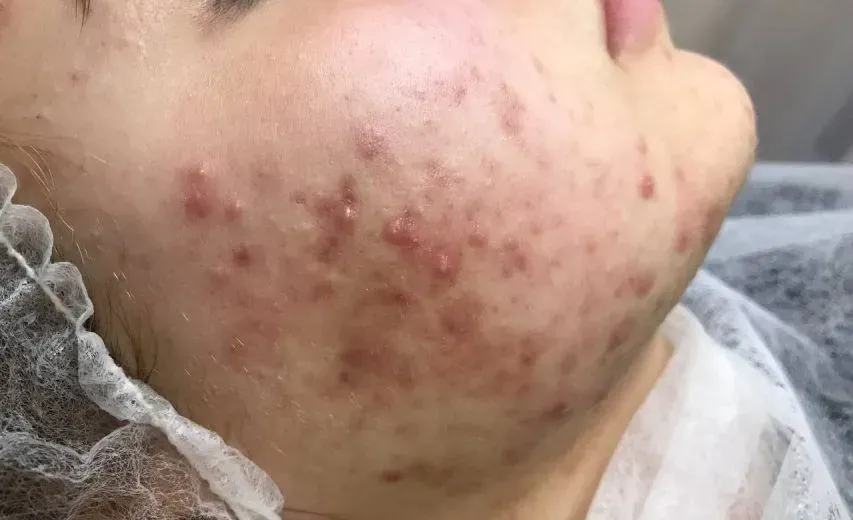
Acne
Acne is a common skin condition caused by clogged pores, excess oil, bacteria, and hormonal changes. It often appears as blackheads, whiteheads, pimples, or deeper cysts, mostly on the face, chest, and back. While it’s most common in teens, many adults experience it too. Treatments range from over-the-counter cleansers and topical creams to prescription medications like antibiotics, hormonal therapy, or isotretinoin. Proper skincare, a balanced diet, and managing stress also help reduce breakouts.
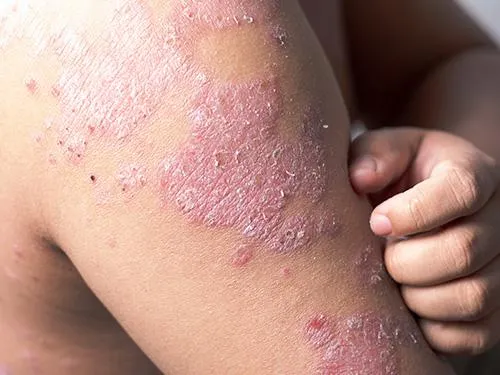
Eczema (Atopic Dermatitis)
Eczema is a chronic skin condition that causes dry, itchy, and inflamed skin. It often begins in childhood and is linked to genetics and allergies. Flare-ups can be triggered by irritants like soaps, temperature changes, or stress. Moisturizing regularly, avoiding triggers, and using prescription creams like steroids or non-steroidal anti-inflammatories can help manage symptoms. In more severe cases, newer biologic treatments are available.
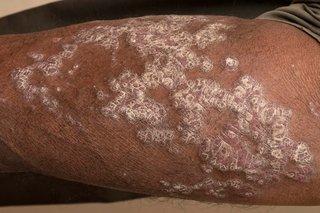
Psoriasis
Psoriasis is an autoimmune condition that speeds up skin cell growth, leading to thick, scaly patches commonly on the elbows, knees, scalp, and back. It can be triggered by stress, infections, or medications and often runs in families. Though not contagious, it can be physically and emotionally uncomfortable. Treatments include moisturizers, steroid creams, light therapy, and advanced options like oral medications and biologics to reduce inflammation and slow skin cell turnover.
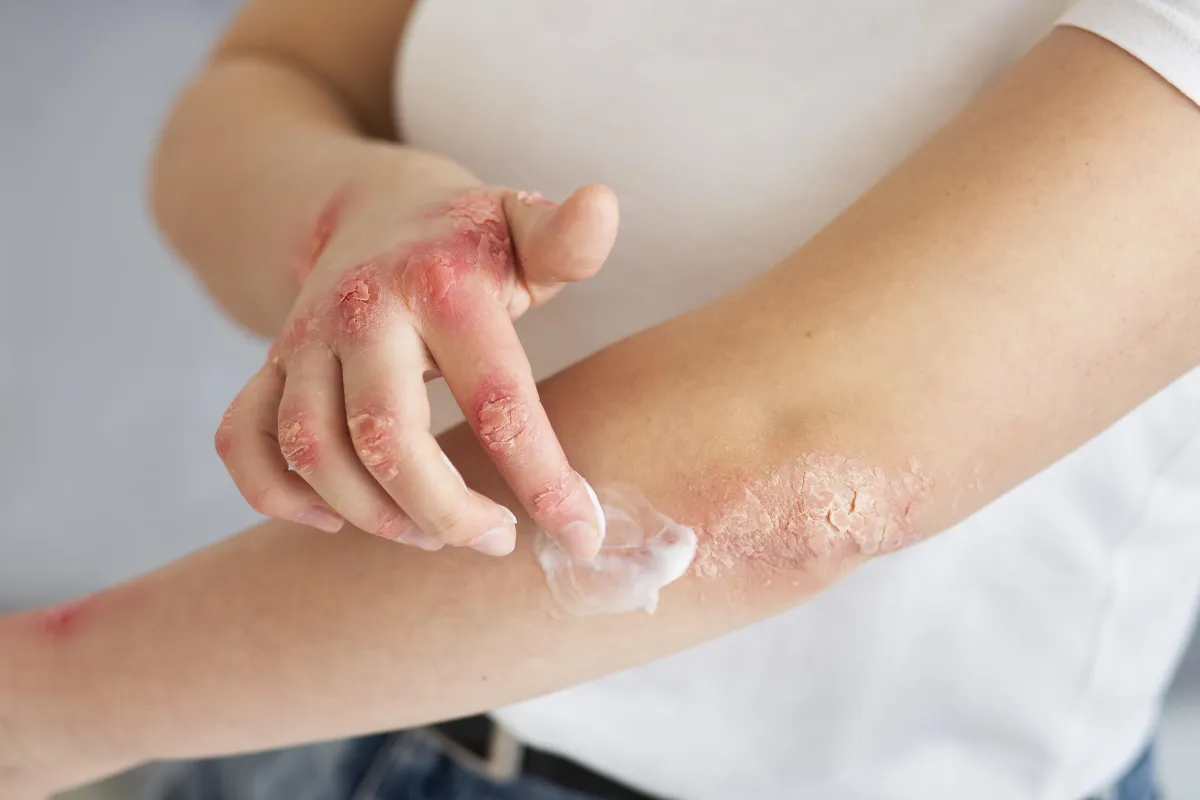
Fungal Infections
Fungal skin infections, like ringworm, athlete’s foot, and yeast infections, are caused by fungi that thrive in warm, moist areas. They typically show up as red, itchy, scaly rashes and may spread if left untreated. Common areas include the feet, groin, scalp, and skin folds. Treatment involves antifungal creams or, in more persistent cases, oral medications. Keeping the skin clean and dry is key to prevention.
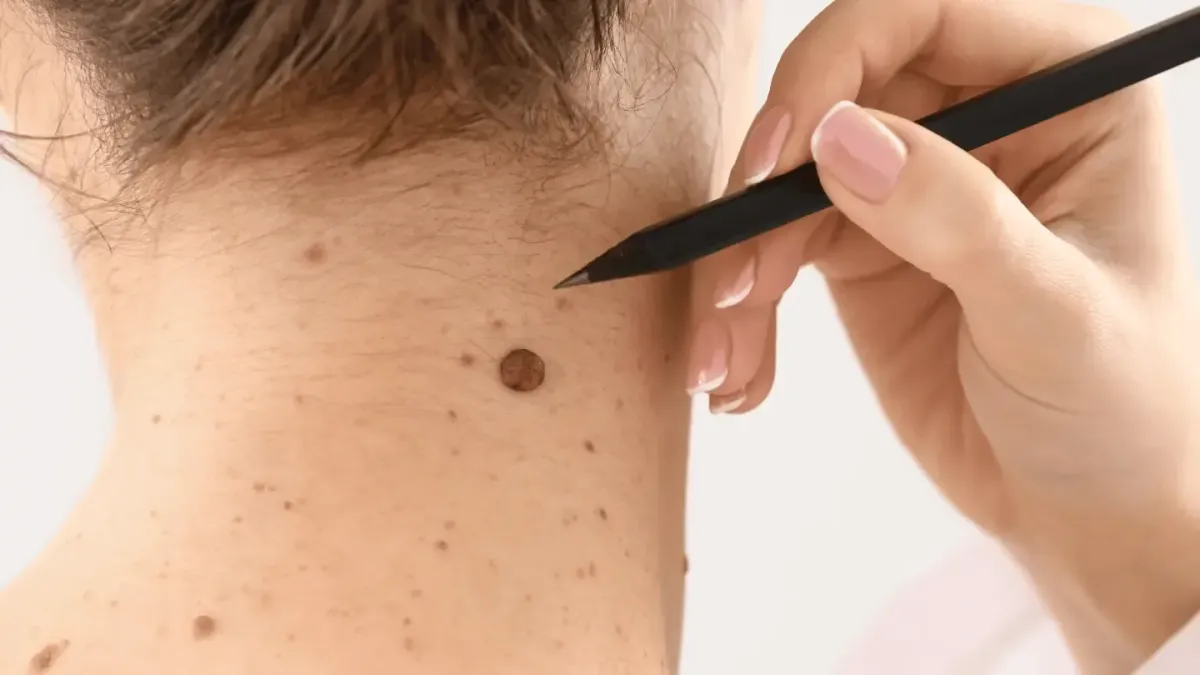
Skin Cancer Checks
Regular skin cancer checks help detect early signs of skin cancer such as basal cell carcinoma, squamous cell carcinoma, and melanoma. Warning signs include new or changing moles, sores that don’t heal, or unusual skin growths. Using sunscreen, avoiding excessive sun exposure, and doing monthly self-checks can reduce risk. A dermatologist uses tools like dermatoses copy to examine spots and may perform a biopsy if something looks suspicious.
What our patients say!
⭐⭐⭐⭐⭐
Dr. Jordan treated my acne and dark spots. She's kind, professional, respectful and knowledgeable. She's my favorite doctor 😍💗 by the way.
- Thaska Lamey
⭐⭐⭐⭐⭐
Dr. Jordan actually listened. She explained my skin type and how some products were doing more harm than good. Her personalized formula was a game changer. It's been two months and my skin is glowing. People keep asking what I’m using! I tell them—go see Dr. Jordan
-Alyssa James

Contact us
Email: [email protected]
Phone: +876-776-8277
Service Hours
Mon – Sat 9:00am – 5:00pm
Sunday – CLOSED









